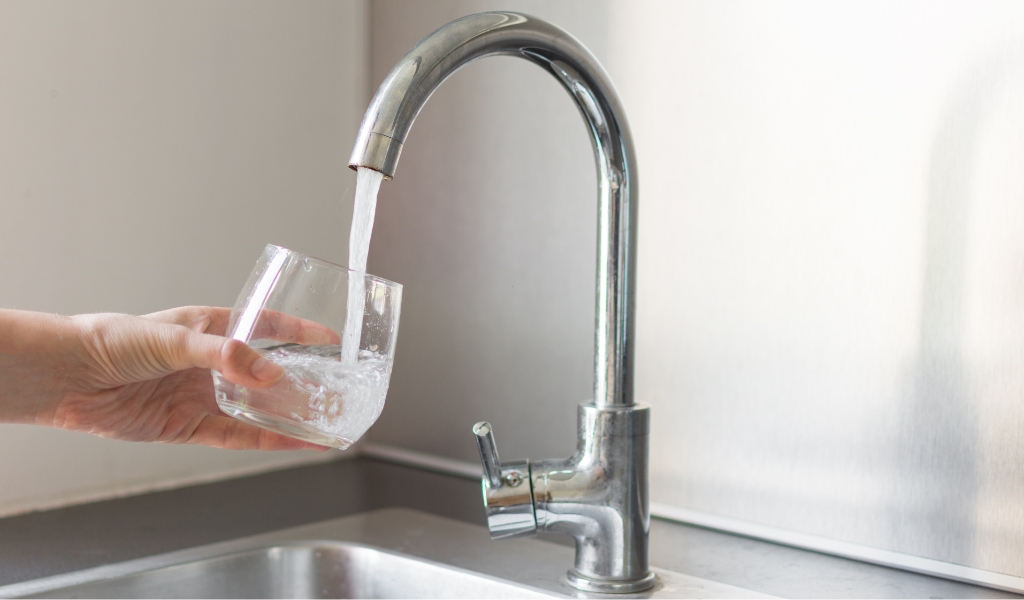Can You Drink Tap Water in Brisbane: A Comprehensive Guide

Do you recently move to Brisbane or plan to do so and wonder about the quality of tap water you’ll be drinking?
Understanding the importance of tap water quality is crucial for health and well-being. The taste and safety of drinking water can significantly vary depending on the water source, local water treatment processes, and even weather events that can introduce compounds requiring removal to meet stringent standards.
Brisbane, a bustling Australian city, prides itself on providing water that adheres to the Australian Drinking Water Guidelines. However, factors such as location within the city, from Ashgrove to Chermside, and external elements like weather events, can affect the water’s taste and quality.
Whether you reside in the heights of Nevada or the busy streets of Brisbane whilst seeking assurance about your drinking water’s safety, this blog post aims to address common concerns and provide valuable insights into Brisbane’s tap water situation.
Understanding Brisbane’s Tap Water
Where Does Brisbane Water Come From
The water supply in Brisbane primarily originates from a collection of dams located within the South East Queensland (SEQ) Water Grid: Wivenhoe, Somerset, North Pine, Hinze, Baroon Pocket, Leslie Harrison, Ewen Maddock, Cooloolabin, Sideling Creek, Lake Macdonald, Little Nerang, and Wappa.
These dams are significant water sources that collect rainwater, which is then treated to meet safe drinking standards. The broad range of water sources ensures a reliable supply, but it also means that water taste and quality can vary slightly depending on which dam the water comes from.
Is Water in Brisbane Hard or Soft
In Brisbane, the water is considered to be ‘hard’ to ‘moderately hard,’ depending on the specific location and source. This ‘hardness’ refers to the presence of dissolved minerals in the water, particularly calcium and magnesium compounds, which can affect everything from the taste to the way the water interacts with soaps and detergents.
Comparative to other Australian cities, Brisbane’s water hardness level is near 100 mg/L, making it harder than Sydney’s ‘soft’ water but similar to Adelaide where hard water is also common.
Water Quality in Brisbane
The quality of Brisbane’s tap water is carefully managed to ensure safety and palatability. The pH level of Brisbane’s water is typically adjusted to be between 6.5 and 8.5.
This is within the safe range that complies with the Australian Drinking Water Guidelines. Residents might notice a slight chlorine taste or smell, a common compound used in water treatment for its disinfecting properties.
Occasionally, the mineral content can impart an earthy or metallic taste, particularly in regions where the water comes from bore sources. The water’s colour can also be influenced by the natural organic materials from its water source but is generally clear and free of any health-affecting contaminants.
Is Brisbane Tap Water Safe to Drink?
So, can you drink tap water in Brisbane? The answer is yes! Brisbane’s tap water is considered safe to drink, and the city continuously monitors and tests the quality of its drinking water.
The Water Grid also has a robust treatment process that includes filtration, disinfection, and testing to ensure compliance with the stringent guidelines set by the Australian government.
However, individuals with weakened immune systems or specific medical conditions may be advised to take additional precautions, such as boiling water or using a water filter, before consumption.
Risks and Concerns Regarding Tap Water Safety
When it comes to the safety and quality of tap water, not just in Brisbane but worldwide, there are common concerns that need to be addressed. One of the primary issues is the potential for contaminants to be present in tap water.
These contaminants can range from naturally occurring minerals to man-made chemicals and biological agents that might compromise water safety. The impact of these contaminants can vary, with some having the potential to cause serious health issues over long periods of exposure.
The presence of unsafe drinking water is a concern that all water management bodies strive to eliminate, adhering to stringent standards to ensure safety.
For instance, the amount of chlorine used in water treatment processes is carefully controlled. Chlorine is essential for disinfecting water, but too much can lead to a noticeable taste and odor, and, in extreme cases, health issues.
Therefore, maintaining the balance of chlorine and other disinfectants in tap water is critical for both safety and palatability.
Benefits of Drinking Tap Water
Choosing to drink tap water over bottled water comes with a multitude of benefits:
- Less waste. Tap water reduces the need for plastic bottles, cutting down on waste.
- More affordable. It is significantly cheaper than purchasing bottled water.
- Better for the environment. By reducing plastic waste and the energy used in bottling processes, tap water is a greener choice.
- Drink local. Consuming tap water means you’re supporting local water supply systems and not relying on transported goods.
- Safer. Tap water in areas like Brisbane undergo rigorous testing to comply with health standards.
- Tastes better. Many people prefer the taste of fresh tap water over bottled water, which can sometimes have a plastic taste.
- More sustainable. Utilizing tap water supports sustainable water management practices.
- Filter to your standards. If desired, individuals can use home water filters to adjust the taste or remove additional contaminants, allowing for customization to personal standards.
Choosing tap water is not only a practical decision but also an environmentally responsible one. By trusting in the stringent standards set by water management authorities and leveraging home filtering solutions when necessary, individuals can enjoy safe, tasty, and sustainable drinking water right from their taps.
Measures Taken to Ensure Tap Water Safety in Brisbane
Water Treatment Processes
Filtration
The filtration process in Brisbane’s water treatment facilities, managed by Seqwater, plays a pivotal role in ensuring the highest quality of drinking water. It involves the removal of suspended particles and impurities from the water through physical barriers.
This method is crucial for eliminating microorganisms and sediments, ensuring clear and safe water flows through the city’s pipes.
Chlorination
Chlorination is a critical disinfection method used to purify Brisbane’s water supply. By carefully adding chlorine to the water, utility companies can eliminate harmful pathogens and bacteria, making the water safe for consumption.
The secret to effective chlorination lies in maintaining the perfect balance – enough chlorine to disinfect, but not so much as to affect the water’s taste or odor significantly.
Desalination
Brisbane also benefits from desalination processes, especially during periods of low rainfall. The desalination plant converts seawater into drinking water by removing salt and other impurities.
This process is essential for supplementing Brisbane’s water supply, particularly during drought conditions. By incorporating desalination, Brisbane ensures a consistent and reliable water source, further bolstering the city’s resilience to climate variability.
Quality Control Measures
Ensuring the safety and palatability of tap water is a top priority for Brisbane’s water utility providers. This is achieved through rigorous quality control measures, including ongoing monitoring systems and regular testing.
Monitoring Systems
Sophisticated monitoring systems are in place across the SEQ Water Grid to continuously assess water quality in real-time. These systems instantaneously detect changes in water characteristics, allowing for immediate adjustments in treatment processes to ensure ongoing compliance with Australian Drinking Water Guidelines.
Regular Testing and Inspection
In addition to real-time monitoring, regular testing and inspection procedures are fundamental to maintaining the highest standards of water quality. Samples are collected at various stages of the treatment process and from multiple points along the distribution network.
These samples undergo detailed analysis to detect any potential contaminants, ensuring that the water delivered to homes and businesses is of the highest quality, safe, and palatable.
Through coagulation, clarification, and rigorous quality assurance practices, Brisbane’s water treatment facilities exemplify the commitment to excellence in public health and safety.
Tips for Improving Tap Water Quality at Home
As a homeowner, know that you can also play a role in maintaining the quality of your tap water. Here are some tips for improving your tap water at home:
- Regular Maintenance: Ensure that your home’s plumbing and drainage systems are regularly checked by a certified plumber. This is especially important in areas like Gold Coast and Brisbane, where the quality of your water can be affected by local infrastructure. Getting in touch with Brisbane plumbing experts can help identify issues that impact water flavour and purity.
- Install Water Filtration Systems: Adding a water filtration system can dramatically improve the taste of your drinkable water by removing impurities and compounds that affect flavour. Queensland Urban Utilities recommends considering filters that can tackle specific concerns, such as calcium, which is prevalent in tank water.
- Flush Your System: Especially if a residence has been vacant for a while, it’s advised to flush the system by allowing taps to run for a few minutes. This process ensures that any stagnant water that may have developed an off taste or become undrinkable is cleared out, making the water taste like it should.
- Use a Water Softener: In areas with hard water, utilising a water softener can prevent the buildup of minerals in your pipes and appliances, ensuring that the water you drink tastes fine and is free from unwanted mineral taste.
- Glass of Water Test: To monitor the quality of your tap water, regularly fill a glass and observe its clarity, smell, and taste. If your water undergoes changes or starts to taste like something it shouldn’t, it could indicate a need for system maintenance or filtration adjustment.
- Stay Informed with Local Water Reports: Water Brisbane and the broader area of Queensland Urban Utilities periodically release reports on water quality. Residents can use this information to understand what is being added to the water and ensure their home filtration methods align with current standards and recommendations.
Conclusion
With the efforts outlined above, ensuring the safety and quality of Brisbane’s tap water emerges as a multifaceted yet achievable goal. The regional vigilance towards water treatment—from chlorination to advanced processes like reverse osmosis — demonstrates a steadfast commitment to public health. The initial taste of tap water, as it first pours from the faucet, reflects these comprehensive safety measures.
Residents of Brisbane and beyond, including areas like Perth, can take comfort in knowing their drinking water exceeds standard quality levels. By staying informed and adopting simple home practices, individuals can further enhance their water’s taste and purity, ensuring every glass is as refreshing as it is safe.
If you are in Brisbane and in need of a professional plumber for any and every plumbing issue, feel free to contact AC Plumbing. We offer both residential plumbing and commercial plumbing services and are dedicated to providing exceptional customer service and top-quality workmanship.



